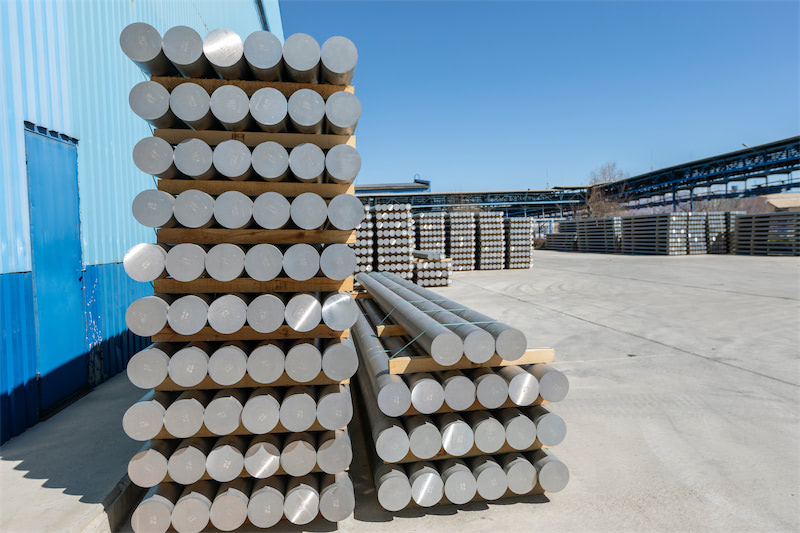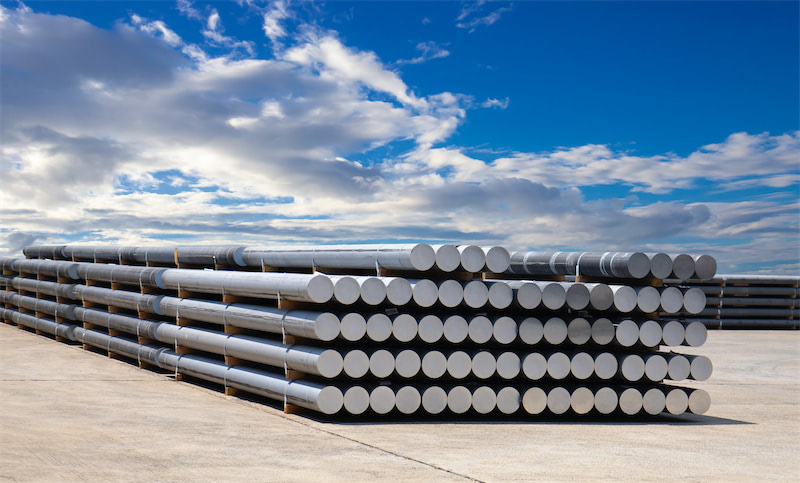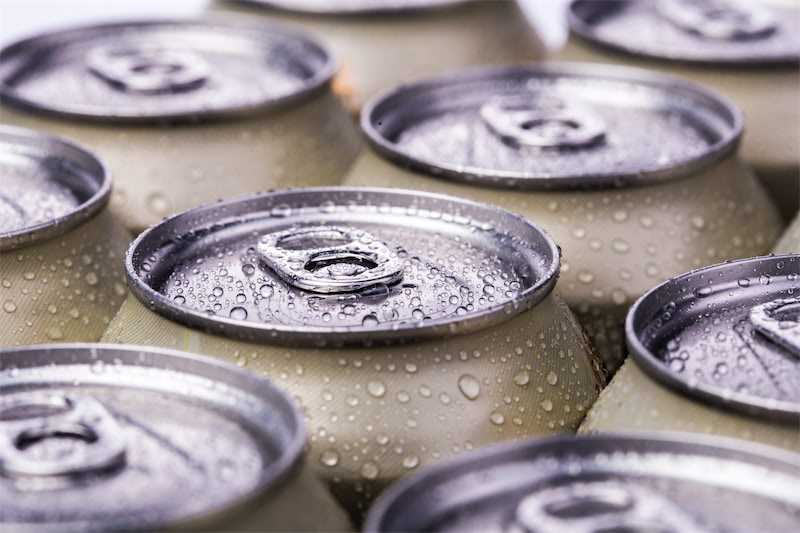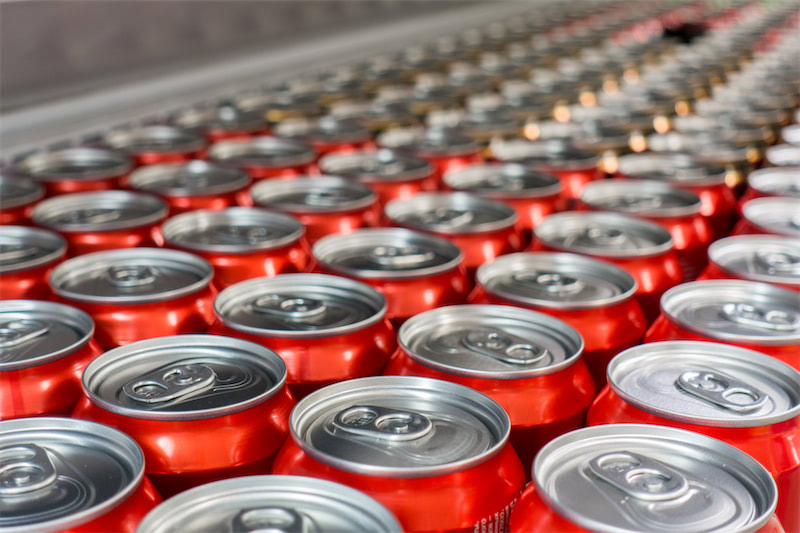SMM12, June 6: Lvliang City issued a heavy pollution weather orange (level II) warning, in which the production of enterprises in the region will be restricted. The impact time ranges from 18:00 on 5 December to 24:00 on 9 December.
Related industry impact
Long process combined iron and steel: sintering machine, pellet equipment stop production, if the early warning response time exceeds 120 hours, then stop production more than 50% (including), calculated by production line; blast furnace stop production more than 50% (including), based on blast furnace; lime kiln stop production; 6m and above carbonization chamber coke time extended to more than 28 hours, less than 6m coke time extended to more than 36 hours. It is forbidden to use heavy goods vehicles (including gas) for material transportation.
Short process iron and steel: electric furnace iron and steel enterprises stop vehicle transportation; independent sintering, pellet, rolling enterprises stop production, stop vehicle transportation.
Ferroalloy: ore heating furnace, refining furnace, medium frequency furnace, drying kiln and sintering machine, etc., stop production of more than 50% (including), according to the scale of production capacity and the number of equipment; the use of heavy cargo vehicles (including gas) for material transportation is prohibited.
Alumina industry: clinker firing and roasting process stopped 50%, in terms of production line; prohibition of the use of heavy truck vehicles (including gas) for material transportation
Electrolytic aluminum: stop production by 30%, calculated by electrolytic cell; prohibit the use of heavy truck vehicles (including gas) to transport raw and auxiliary materials and products.
The original text is as follows:
The people's governments of each county (city or district) and the units directly concerned by the municipality:
According to the relevant provisions of the Shanxi Provincial Air pollution Prevention and Control leading Group Office "dealing with heavy pollution Weather Dispatch order" (2019) No. 11), combined with environmental air quality real-time monitoring data, meteorological data and meteorological consultation forecasts of relevant departments, recently, the diffusion conditions in our city have deteriorated, pollutants have gradually accumulated, and some periods of time may occur in the process of moderate to severe pollution, which was studied and decided by the heavy pollution Weather Emergency Command. From 18:00 on 5 December to 24:00 on 9 December, an orange alert for heavily polluted weather (level II) was issued, while a level II emergency response was activated. The main emergency measures are:
I. proposed measures for pollution reduction
1. Units and the public to minimize the use of VOCs coatings, paints, solvents and other raw materials and products.
2. It is advocated that the sewage discharge units should strengthen the management, reduce the production load as far as possible, improve the treatment efficiency of the pollution control facilities on the basis of meeting the discharge standards, shorten the production time, and arrange the overhaul of equipment and cold repair of furnaces and kilns.
3. Strengthen road cleaning and cleaning, reduce traffic dust pollution.
4. Refuse to barbecue in the open air.
5. Consciously stop driving fuel vehicles registered before December 31, 2007.
II. Mandatory emission reduction measures
In accordance with the Ministry of Environmental Protection "on strengthening heavy pollution weather to deal with tamping emergency emission reduction measures" (Environmental Protection Office Atmospheric letter [2019] No. 648) and Lvliang City heavy pollution weather emergency emission reduction measures in 2019.
(1) long process combined iron and steel: sintering machine, pellet equipment stop production, if the early warning response time exceeds 120 hours, then stop production more than 50% (including), calculated by production line; blast furnace stop production more than 50% (including), calculated by blast furnace; stop production in lime kiln; coke discharge time in carbonization chamber of 6m and above is extended to more than 28 hours, and coke discharge time below 6m is extended to more than 36 hours. It is forbidden to use heavy goods vehicles (including gas) for material transportation.
(2) short process iron and steel: electric furnace iron and steel enterprises stop vehicle transportation; independent sintering, pellet and rolling enterprises stop production and stop vehicle transportation.
(3) Ferroalloy: ore heating furnace, refining furnace, medium frequency furnace, drying kiln and sintering machine shall stop production by more than 50% (including), in terms of production capacity and quantity of equipment; the use of heavy cargo vehicles (including gas) shall be prohibited for material transportation.
(4) Coking industry: extend the coking time to 48 hours; heat recovery coke enterprises extend the coking time for 24 hours on the existing basis; the use of heavy truck vehicles (including gas) for material transportation is prohibited.
(5) Alumina industry: clinker firing and roasting process stop 50%, on the basis of production line; the use of heavy truck vehicles (including gas) for material transportation is prohibited.
(6) Electrolytic aluminum: stop production by 30%, calculated by electrolytic cell; prohibit the use of heavy truck vehicles (including gas) to transport raw and auxiliary materials and products.
(7) carbon: more than 50% of the production of the roasting process shall be stopped on the basis of flame system; the production of calcination process shall be stopped; the transportation of raw and auxiliary materials by heavy load vehicles (including gas) shall be prohibited.
(8) cement: production of cement products, grinding stations and cement clinker production lines shall be suspended; enterprises cooperating with the disposal of municipal solid waste or hazardous waste, the production line where the total amount of domestic waste and sludge is less than 400 tons (including) and the total amount of toxic and hazardous waste is less than 4% of clinker production capacity shall be discontinued; the use of heavy truck vehicles (including gas) shall be prohibited for material transportation.
(9) Brick kiln: stop production; prohibit transportation.
(10) Ceramics: production of all ceramics except Wei pottery and daily ceramics shall be suspended; transportation is prohibited.
(11) Refractories: enterprises using coal as fuel shall cease production; enterprises using non-natural gas, gas or liquefied petroleum gas as fuel shall stop production by more than 50% (including), in terms of production line; the use of heavy cargo vehicles (including gas) shall be prohibited for material transportation.
(12) Glass: according to the minimum daily production load in the previous year, from the date of commencement of the early warning date; the use of heavy cargo vehicles (including gas) for material transport shall be prohibited.
(13) Rock wool: (1) the production of enterprises using non-electric arc furnaces shall be suspended; the use of heavy goods vehicles (including gas) shall be prohibited for the transport of materials. (2) Enterprises using electric arc furnaces shall stop production by more than 50% (including), according to production facilities, and the use of heavy goods vehicles (including gas) shall be prohibited for material transportation.
(14) Limekiln: stop production; prohibit the use of heavy goods vehicles (including gas) for material transport.
(15) Foundry industry: all gas-related processes shall be suspended; the use of heavy goods vehicles (including gas) shall be prohibited for the transportation of materials.
(16) Pharmaceutical industry: enterprises stop production by more than 30% (including), the proportion of suspension is determined by the number of fermentation tanks, the proportion of shutdown is determined by the number of reaction tanks, and the proportion of shutdown is determined by the number of extraction tanks. The use of heavy cargo vehicles (including gas) in country 4 and below is prohibited for material transportation.
(17) Pesticide manufacturing: enterprises stop production by more than 30% (including), raw drug enterprises implement "fixed production by tank", determine the proportion of suspension by the number of fermentors and reaction tanks; independent preparation enterprises determine the proportion of suspension by the number of production lines; the use of heavy cargo vehicles (including gas) at or below the fourth of the country is prohibited for material transportation.
(18) coating manufacture: the production of VOCs emission processes related to batching, premixing, dispersion, blending, melting, stirring, filtration, adjustment and filling shall be suspended; the use of heavy truck vehicles (including gas) shall be prohibited for material transportation.
(19) Ink manufacturing: the production of VOCs emission processes such as batching, melting, mixing, grinding, adjustment, filling, packaging, etc., shall be suspended; the use of heavy truck vehicles (including gas) shall be prohibited for material transportation.
(20) Furniture manufacturing: wooden furniture, bamboo and rattan furniture, metal furniture and other furniture enterprises using non-solvent coatings shall stop production by more than 50% (including), in terms of production line; wooden furniture, bamboo and rattan furniture, metal furniture and other furniture enterprises using solvent coatings shall stop production, including VOCs emission processes such as sizing, painting, drying / drying, etc.; (2) Furniture manufacturing: wooden furniture, bamboo and rattan furniture, metal furniture and other furniture enterprises using non-solvent coatings shall stop production of wood furniture, bamboo and rattan furniture, metal furniture and other furniture enterprises using non-solvent coatings. It is forbidden to use heavy goods vehicles (including gas) for material transportation.
(21) Packaging printing: enterprises using non-solvent inks shall stop production by more than 50% (including), in terms of the number of printing presses; enterprises using solvent inks shall cease production; the use of heavy goods vehicles (including gas) shall be prohibited for material transportation.
(22) Wood-based panel manufacturing: the production of VOCs emission processes related to sizing, prepressing, hot pressing and drying of wood-based panel enterprises shall be suspended; the use of heavy truck vehicles (including gas) shall be prohibited for material transportation.
(23) Plastics manufacturing: recycled plastics manufacturing, plastic artificial leather manufacturing, synthetic leather manufacturing enterprises shall cease production; the use of heavy goods vehicles (including gas) for material transport shall be prohibited.
(24) Rubber products manufacturing: the use of new coupling agents, adhesives, paraffin oil enterprises refining, Calendering, bonding, molding, vulcanization and other related VOCs emission processes to stop production, in terms of production line; the use of solvent-based coupling agents, adhesives, the use of ordinary aromatic oil, coal tar, such as rubber refining, Calendering, bonding, molding, vulcanization and other VOCs emission processes to stop production; It is forbidden to use heavy goods vehicles (including gas) for material transportation.
(25) Industrial painting: enterprises using low VOCs content coatings, such as powder, water, high solid content, UV curing, etc., shall stop producing more than 50% (including) of VOCs emission processes, such as powder, water, high solid content, UV curing, etc., in terms of production lines; enterprises using solvent coatings shall stop production of VOCs emission processes, such as painting, drying / drying, etc. It is forbidden to use heavy goods vehicles (including gas) for material transportation.
(26) Industrial boilers (excluding residential heating boilers): the performance grade of industrial boilers is linked to the performance grade of the enterprise to which it belongs or the enterprise it serves, and the corresponding emission reduction measures are taken according to the lower level of performance rating and according to the industry to which it belongs.
(27) Thermal power and thermal supply enterprises: enterprises that cannot meet the emission requirements of sulphur dioxide 20 mg / m3 or nitrogen oxides 35 mg / m3 are prohibited from using heavy goods vehicles (including gas) for material transport.
(28) Underground mining and washing of coal and underground mining of other minerals: it is prohibited to use heavy cargo vehicles (including gas) for material transport.
(29) Open pit mining of coal, ferrous metals and non-ferrous metals: suspension of production; prohibition of the use of heavy goods vehicles (including gas) for material transport.
(30) non-metallic mining and processing: suspension of production; prohibition of the use of heavy goods vehicles (including gas) for material transport.
(31) Chemical industry: stop production by 30%, measured by production line (single production line running at 70% load); prohibit the use of heavy goods vehicles (including gas) for material transport.
(32) Liquor manufacture: the use of heavy goods vehicles (including gas) at or below Kwok 4 for the transport of materials is prohibited.
(33) manufacture of building materials: suspension of production; prohibition of the use of heavy goods vehicles (including gas) at or below Guo IV for the transport of materials.
(34) Coal storage yards and other storage yards: the use of heavy goods vehicles (including gas) at or below Guo 4 shall be prohibited for the transport of materials.
(35) Humic acid: stop crushing, milling and other processes.
(36) Machining (metal structure processing): stop the operation of air pollutant discharge in the open air (painting, polishing, welding, etc.).
(37) Automobile repair: the production of VOCs emission processes such as painting, drying / drying, etc., shall be discontinued.
(38) Iron and steel, coking, cement and other industries collaborative heating, gas supply enterprises: the implementation of heat, gas production.
(39) for the uninterruptible production process, the key sewage enterprises that reduce emissions by taking measures such as improving pollution control efficiency and limiting production load need to install flue gas emission automatic monitoring facility (CEMS), and provide distributed control system (DCS) data records for more than one year, self-proof to meet the requirements of emission reduction ratio.
(40) Motor vehicle control measures: non-road mobile machinery (other than clean energy and emergency maintenance machinery) in construction sites, industrial enterprise factory areas and industrial parks where non-road mobile machinery has ceased to be used (other than clean energy and emergency maintenance machinery); Mines (including coal mines), coal preparation plants, logistics (except for livelihood protection) and other units involved in the transport of bulk raw materials and products (daily vehicle inbound and outbound more than 10 times) shall stop using heavy trucks (including gas) for transportation (except special vehicles, dangerous chemicals vehicles, etc.). Other enterprise vehicles shall be implemented in accordance with the list of Industrial Emergency Emission reduction.
Micro, light and medium goods vehicles (gasoline, gas) and micro, small and medium passenger vehicles (gasoline, gas) countries 1 and previous non-operating vehicles are prohibited; micro and light goods vehicles (diesel) and small, medium and large passenger vehicles (diesel) country 3 and below diesel vehicles are prohibited from 8: 00 to 20: 00; medium goods vehicles (diesel) country 3 and below diesel vehicles are prohibited throughout the day; Heavy goods vehicles are prohibited from entering the restricted areas and guide foreign transit vehicles to avoid the restricted areas; large passenger cars (gasoline) buses are all on the road, increase the frequency of operation, prolong the operating time, advance the first shift of the main line, and appropriately postpone the night shift time; tricycles, low-speed cars and motorcycles are prohibited throughout the day. The use of non-road mobile machinery (except clean energy and emergency maintenance machinery) shall be stopped at the construction site, the industrial enterprise factory area and the industrial park from 20: 00 to 8:00 the next day; other enterprise vehicles shall be implemented in accordance with the list of Industrial Emergency Emission reduction.
(41) Dust pollution control measures: mines, stone factories, slate factories, etc., should stop open-air operations, construction sites should stop earthwork operations, building demolition, spraying and painting, slope protection grouting, concrete mixing, etc., the bare ground of the construction site should be fully covered, and the frequency of machine sweeping and sprinkling should be increased in the main road and dust-raising sections. Uninstalled airtight device is easy to produce scattered coal, slag, stone and other transport vehicles to stop on the road. Construction in the non-freezing period to increase the frequency of sprinkling water and dust; enterprise yard dustproof measures in place, at the same time, the number of sprinkling water in the non-freezing period increased once a day on the basis of the original.
During the period of heavy pollution weather early warning, news units shall release early warning information to the public in a timely manner; the people's governments of various counties (cities and districts) shall organize and implement the implementation and supervision of various response measures for heavy pollution weather in their respective administrative areas, and implement the relevant control measures in accordance with the newly revised list of emergency emission reduction; the units directly concerned shall do a good job in responding actively in accordance with their respective duties; The heavy pollution weather response information will be submitted to the office of the Municipal heavy pollution Weather Emergency Command by 14:00 every day.
Associate: Hu Guirong Tel: 0358-8234317 email: llshjyjzx@163.com

Scan QR code, apply to join SMM metal communication group, please indicate company + name + main business



